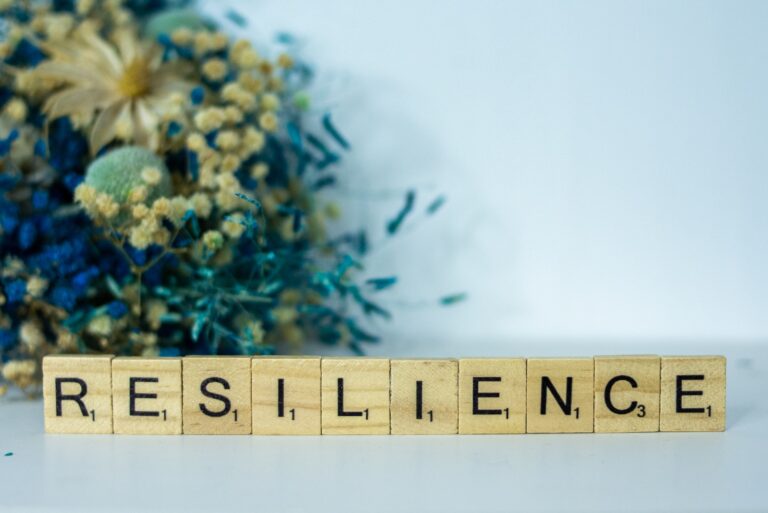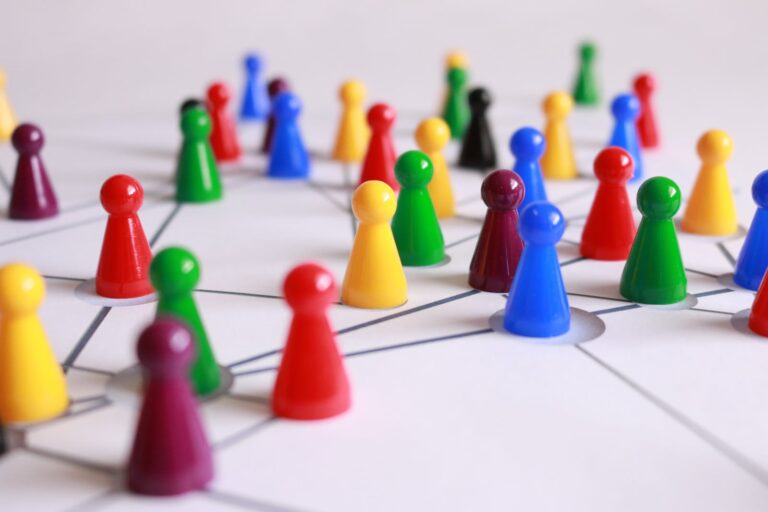The Power of Great Teammates: Building a Culture of Collaboration for Organizational Success
The Importance of Teamwork: Achieving Organizational Goals Together
Effective teamwork is essential to the success of any organization, whether it be in the business world or in other fields such as sports or the arts. A team that works well together can achieve more than any individual could on their own. However, building and maintaining a strong team is not an easy feat. It requires a group of individuals who are willing to work together towards a common goal, and who possess the skills and characteristics necessary for effective collaboration.
The importance of teamwork cannot be overstated. In today’s fast-paced and complex business environment, organizations need to be able to respond quickly to changes in the market and to innovate in order to stay ahead of the competition. Effective teamwork can help organizations to do just that. When team members work well together, they can leverage each other’s strengths and expertise to come up with innovative solutions to complex problems. Additionally, working in a team can help to distribute the workload and prevent burnout among individual team members.
However, not all teams are created equal. Some teams are plagued by infighting, gossip, and a lack of trust among team members. These teams often struggle to achieve their goals and may even cause damage to the organization as a whole. In contrast, great teams have great teammates. These individuals prioritize the success of the team over their own personal agendas and work together to achieve a common goal. They support each other, provide constructive feedback, and hold each other accountable for their actions.
In this article, we will explore the characteristics of great teammates and the consequences of having bad teammates on a team. We will also discuss the role of leadership in building great teams and provide strategies for developing great teammates. By the end of this article, you will have a better understanding of what it takes to build a high-performing team and how you can contribute to that success.
The Characteristics of Great Teammates
In order to build a great team, it’s important to have great teammates. So, what exactly does it mean to be a great teammate? Great teammates possess a range of characteristics that contribute to effective teamwork.
One of the key characteristics of great teammates is empathy. Empathy is the ability to understand and share the feelings of others. When team members are empathetic towards each other, they are better able to communicate and work together. They are also more likely to support each other during times of stress or uncertainty. For example, if a team member is struggling to meet a deadline, an empathetic teammate might offer to help out or provide encouragement.
Another important characteristic of great teammates is accountability. Accountability means taking responsibility for one’s actions and being willing to admit when mistakes are made. When team members hold themselves accountable, they are more likely to take ownership of their work and to follow through on their commitments. This can help to build trust among team members and ensure that everyone is working towards the same goal.
A third characteristic of great teammates is a willingness to help others. Great teammates are not solely focused on their own success; they are also invested in the success of their team. They are willing to lend a hand when needed and to offer support and guidance to their teammates. This can help to create a culture of collaboration and mutual support within the team.
In addition to these key characteristics, great teammates also possess a range of other qualities that contribute to effective teamwork. These may include strong communication skills, a positive attitude, and the ability to adapt to change.
It’s worth noting that developing these characteristics takes time and effort. Building a team of great teammates requires a commitment to ongoing personal and professional development. However, the payoff can be significant. When a team is made up of individuals who possess these characteristics, they are better able to collaborate, communicate effectively, and achieve their goals.
Real-world examples of great teammates can be found in many different fields. For example, in the world of sports, successful teams are often made up of individuals who are willing to put the needs of the team ahead of their own personal goals. They support each other both on and off the field, and they are able to communicate effectively in order to execute complex plays. In the business world, great teammates are often those who are able to work well in cross-functional teams, bringing together individuals from different departments or areas of expertise to achieve a common goal.
Great teammates possess a range of characteristics that contribute to effective teamwork. Empathy, accountability, and a willingness to help others are just a few of the key qualities that can help to build a strong team. By developing these characteristics in ourselves and our team members, we can create a culture of collaboration and support that can lead to success in any field.
The Consequences of Bad Teammates
In contrast to great teammates, bad teammates can have a significant negative impact on a team’s ability to succeed. When team members are focused on their own success rather than the success of the team, it can create a toxic environment that undermines collaboration and innovation.
One of the most damaging consequences of having bad teammates is a decrease in morale. When team members are constantly fighting or undercutting each other, it can create a sense of tension and distrust that can be difficult to overcome. This can lead to decreased motivation and productivity, as team members may be more focused on protecting their own interests rather than working towards the team’s goals.
Another consequence of having bad teammates is a decrease in productivity. When team members are not working well together, it can create delays and bottlenecks in the work process. For example, if one team member is constantly missing deadlines or failing to complete their work, it can slow down the entire team’s progress. This can lead to missed opportunities and decreased efficiency.
Perhaps most damaging of all, having bad teammates can undermine the success of the organization as a whole. When teams are not able to work effectively together, they may miss out on important opportunities or fail to innovate in response to changes in the market. This can lead to a loss of market share or even the failure of the organization.
Real-world examples of bad teammates can be found in many different contexts. In the business world, bad teammates may be those who are more focused on their own personal goals than on the success of the team or organization. They may engage in office politics, gossip, or other behaviors that create a toxic work environment. In sports, bad teammates may be those who refuse to pass the ball or work effectively with their teammates, instead focusing on their own individual statistics.
Bad teammates can have a significant negative impact on a team’s ability to succeed. Decreased morale, productivity, and organizational success are just a few of the consequences of having bad teammates. It’s important for leaders to be aware of these consequences and to take action to address any toxic dynamics within their teams. By promoting a culture of collaboration and support, leaders can help to build strong teams that are able to achieve their goals and succeed in today’s fast-paced business environment.
The Role of Leadership in Building Great Teams
Creating a culture of teamwork and collaboration within an organization requires strong leadership. Leaders play a critical role in setting the tone for the organization and promoting a culture of support and cooperation among team members.
One of the most important things that leaders can do to build great teams is to lead by example. This means modeling the behaviors and characteristics that are essential for effective teamwork, such as empathy, accountability, and a willingness to help others. When leaders demonstrate these qualities, they set the standard for behavior within the organization and create a culture of support and collaboration.
Another key role that leaders play in building great teams is providing the necessary resources and support to enable team members to work effectively together. This may involve providing training or coaching to help team members develop the skills they need to collaborate effectively. It may also involve providing tools and technology that can facilitate communication and collaboration.
In addition to providing resources and support, leaders can also help to build great teams by creating a clear sense of purpose and direction for the team. When team members understand their role within the organization and have a clear understanding of what they are working towards, they are more likely to be motivated and engaged. Leaders can also help to foster a sense of shared ownership and accountability for the team’s success, which can help to build trust and collaboration among team members.
Finally, leaders play an important role in addressing any toxic dynamics within the team. This may involve addressing conflicts between team members or taking steps to prevent office politics or gossip from spreading. Leaders can also encourage open communication and constructive feedback, which can help to prevent misunderstandings and promote collaboration.
Real-world examples of effective leadership in building great teams can be found in many different contexts. In the business world, leaders who prioritize collaboration and teamwork are often able to build strong and innovative teams that are able to adapt to changing market conditions. In sports, effective coaches are able to bring together individual players from different backgrounds and skill sets to create a cohesive and successful team.
Leadership plays a critical role in building great teams. By modeling the behaviors and characteristics of effective teamwork, providing resources and support, creating a clear sense of purpose and direction, and addressing toxic dynamics within the team, leaders can create a culture of collaboration and support that can lead to success in any field.
Strategies for Developing Great Teammates
Developing great teammates takes time and effort, but it is a worthwhile investment that can pay off in the form of increased productivity, innovation, and organizational success. There are a number of strategies that individuals and organizations can use to promote the development of great teammates.
One strategy for developing great teammates is to encourage and model active listening. Active listening involves giving one’s full attention to the speaker and seeking to understand their perspective. When team members actively listen to each other, they are better able to communicate effectively and collaborate on projects. Active listening also helps to build trust and empathy among team members.
Another strategy for developing great teammates is to provide constructive feedback. Constructive feedback is feedback that is focused on specific behaviors or actions, rather than on personal attributes. When team members receive constructive feedback, they are better able to improve their performance and develop new skills. Additionally, providing constructive feedback helps to build a culture of continuous improvement and growth within the team.
Showing appreciation for the contributions of team members is another important strategy for developing great teammates. When team members feel valued and appreciated, they are more likely to be motivated and engaged. Leaders can show appreciation in a variety of ways, such as publicly recognizing team members for their achievements, offering incentives or rewards, or simply expressing gratitude for their hard work.
Organizations can also support the development of great teammates through training, coaching, and mentoring. Training programs can provide team members with the skills and knowledge they need to collaborate effectively. Coaching and mentoring programs can offer one-on-one support and guidance to team members, helping them to develop new skills and overcome obstacles.
Real-world examples of successful strategies for developing great teammates can be found in many different fields. For example, in the business world, some organizations have implemented programs to encourage cross-functional collaboration and to recognize and reward team members who demonstrate the characteristics of great teammates. In sports, coaches may use team-building exercises or simulations to help players develop trust and teamwork skills.
Developing great teammates requires a commitment to ongoing personal and professional development. Active listening, constructive feedback, showing appreciation, and training, coaching, and mentoring are just a few of the strategies that individuals and organizations can use to promote the development of great teammates. By investing in the development of great teammates, organizations can build a culture of collaboration and support that can lead to success in any field.
Creating a Culture of Collaboration: The Key to Building Great Teams
In conclusion, effective teamwork is essential to achieving organizational success. Great teams have great teammates who possess key characteristics such as empathy, accountability, and a willingness to help others. In contrast, bad teammates can have a significant negative impact on team morale, productivity, and organizational success.
Leaders play a critical role in building great teams by modeling effective teamwork behaviors, providing resources and support, creating a clear sense of purpose and direction, and addressing any toxic dynamics within the team. Organizations can also support the development of great teammates through training, coaching, and mentoring.
Developing great teammates requires a commitment to ongoing personal and professional development. Active listening, constructive feedback, showing appreciation, and training, coaching, and mentoring are just a few of the strategies that individuals and organizations can use to promote the development of great teammates.
Ultimately, building great teams is about creating a culture of collaboration and support that enables team members to work together effectively towards a common goal. When teams are able to collaborate effectively, they are better able to respond to changes in the market, to innovate, and to achieve their goals.
As we move forward into an increasingly complex and fast-paced business environment, the ability to work effectively in teams will become more important than ever. By prioritizing the development of great teammates and promoting a culture of collaboration and support, organizations can position themselves for success in the years to come.







